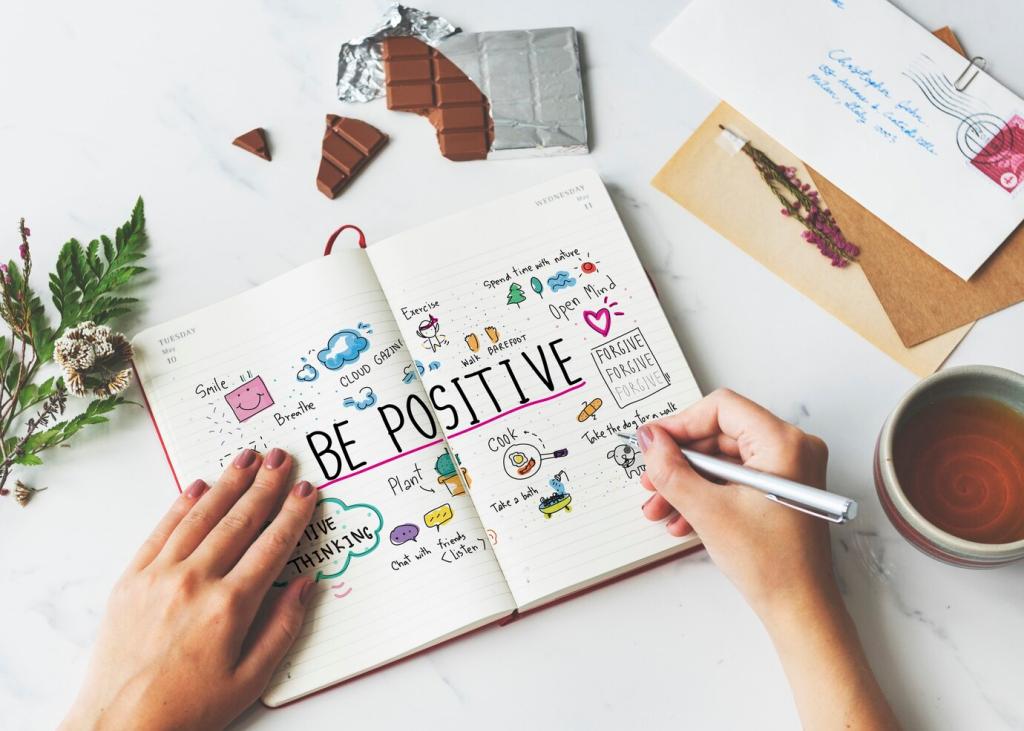
The Importance of Sleep for Well-Being
Selected theme: The Importance of Sleep for Well-Being. Welcome to a calming corner of the internet where we explore how restorative sleep nurtures your body, mind, and mood—and share practical steps to help you rest deeper tonight. Join the conversation and subscribe for weekly sleep wisdom.
The Science Behind Restorative Sleep
Melatonin rises with darkness while cortisol tapers, guiding your body toward rest and repair. Respecting this hormonal dance supports blood pressure, metabolism, and emotional balance, setting the stage for mornings that begin clear, calm, and energized. What rhythms help you unwind?
Deep NREM sleep strengthens memory and clears metabolic waste through the brain’s glymphatic system, while REM sleep integrates emotions and creativity. Together, they reinforce learning and resilience, turning scattered experiences into lasting insight you can use tomorrow.
Short nights blunt natural killer cell activity and weaken vaccine responses. Consistent seven to nine hour sleep windows help immune cells coordinate surveillance, repair tissues, and respond to threats. Share your tips for maintaining healthy sleep during stressful seasons when defenses matter most.


Practical Habits for Consistent, Quality Sleep
Evening Rituals that Stick
Anchor bedtime with repeatable cues: warm shower, herbal tea, a few pages of fiction, and dim lights. Keep the sequence consistent, even on weekends. Stability trains your internal clock, making sleepiness predictable and awakenings gentler. Share your ritual to inspire fellow readers.
Taming Light and Screens
Bright blue-white light tells your brain it is daytime. Create a digital sunset one to two hours before bed, switch to warmer bulbs, and step outside for morning sunlight. That contrast strengthens circadian timing, reducing bedtime restlessness and early-morning wakefulness over the coming weeks.
Caffeine, Alcohol, and Timing
Caffeine’s half-life can linger through evening, and alcohol fragments REM, leaving you foggy. Aim to stop caffeine by early afternoon and limit nightcaps. Hydrate earlier, and if you wake, stay calm, breathe slowly, and resist checking the clock. Comment with what timing works for you.
Designing a Bedroom that Loves Sleep
Darkness and Light Cues
Darken your room with blackout curtains or an eye mask, and keep night lights warm and low. Reserve bright exposure for mornings. This simple contrast supports melatonin signaling and helps you fall asleep faster. Do you prefer an eye mask or blackout shades? Tell us why.


Sound, Temperature, and Fresh Air
Cool rooms, around 17 to 19°C or 63 to 66°F, tend to support deeper sleep. White noise or gentle nature sounds can mask disruptions. Crack a window if safe, or purify indoor air. Share your favorite sleep soundtrack to help others craft a calmer night.
Sleep, Performance, and Emotional Well-Being
Sharper Decisions and Fewer Errors
Well-rested brains sustain attention longer and avoid costly mistakes. Sleep strengthens prefrontal control, improving planning and impulse regulation. Before tough choices, prioritize a solid night. Notice better recall and calmer meetings. What decision felt easier after a truly restful sleep? Share your story.
Mood Stability and Resilience
Short sleep amplifies amygdala reactivity, making stress feel bigger. Adequate rest restores emotional regulation, patience, and empathy. Many readers report fewer arguments and gentler self-talk after steady sleep. Try it for two weeks and tell us how your relationships feel different.
Creativity and Insight
REM-rich nights recombine ideas in unexpected ways. Musicians, writers, and developers often wake with solutions that felt impossible late at night. Keep a notebook bedside to capture sparks. Subscribe for weekly creativity prompts designed around your sleep cycles and morning focus.

When Anxiety Steals the Night
If your mind races, try a wind-down journal fifteen minutes before bed, then a brief box-breathing practice. Pair this with a consistent wake time. If you wake at night, read something calming off-screen. Comment with techniques that quiet your thoughts most reliably.

Parenting and Patchwork Sleep
Newborn phases are intense. Protect naps when possible, share night duties, and keep expectations kind. Micro-rests count. Anchor a stable morning light routine for the whole household. Parents, what tiny adjustments helped you feel human again? Your tips can lift someone’s hardest week.

Jet Lag and Shift Work Strategies
Time your light exposure, meals, and short naps to nudge your clock. Sunglasses after a night shift and bright light before work can help. Hydrate, schedule movement, and protect recovery days. Share your route or shift schedule and we will suggest a tailored reset.
